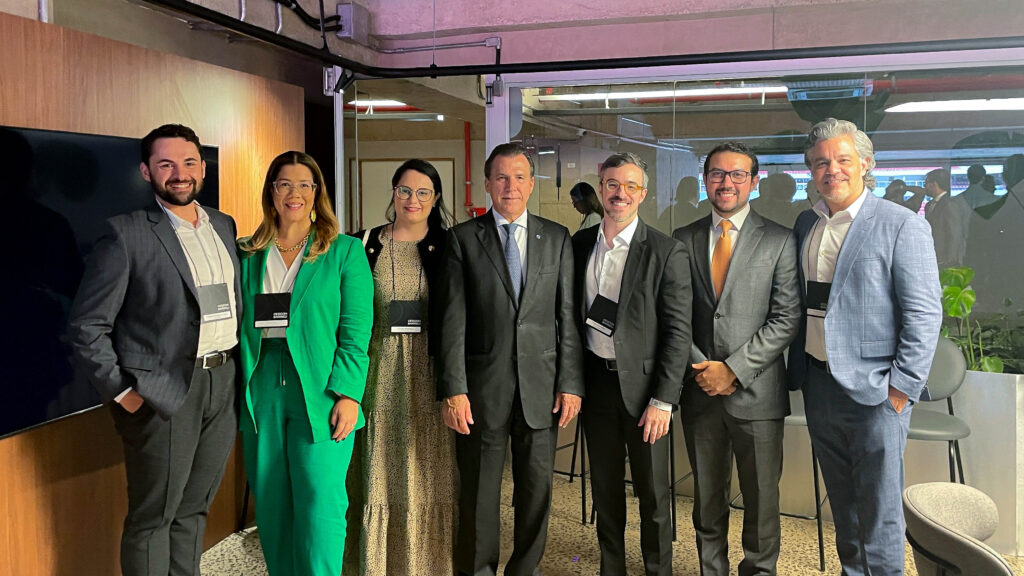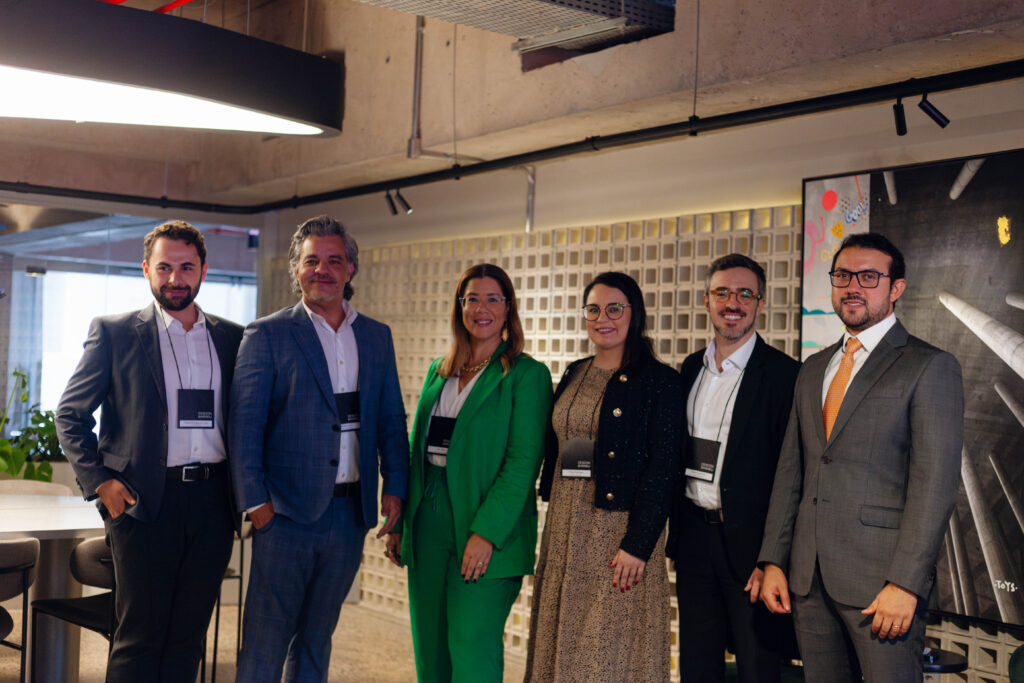The event featured the Minister of Labor and addressed labor topics that have stirred the market in recent weeks.
The week of Labor Day marked the launch of Brasília Talks, a series of strategic events designed to bring our clients closer to decision-making centers and promote high-level debates on regulatory matters. This first edition, held on April 28 and focused on employment and labor issues, took place at Arena BRB Mané Garrincha in Brasília, with the participation of Luiz Marinho, Minister of Labor and Employment.
Luiz Marinho began his presentation by sharing data that reflects the ministry’s progress under the current administration and then answered questions from the Cescon Barrieu team.
Work Models Under Discussion
According to Viviane Rodrigues, our Labor partner, it was clear that “the Ministry of Labor remains committed to its agenda of job and income generation, listening to the market and industry sectors to find a balance between labor protections and economic activity.”
Viviane noted that when discussing app-based workers, for example, Luiz Marinho stated that “resolving the issue concerning drivers should lead the discussion about delivery workers, requiring regulation of the sector and the provision of minimum protections for these professionals.”
The Minister also addressed the 6×1 work schedule, arguing that Brazil should follow the example of developed countries that limit weekly working hours to 40, enabling, especially for women, effective rest and family time.
PIX, FGTS, and Inspection
For our Corporate Law and Governance partner, Fernando Xavier, the highlight was the Minister’s statement denying the Federal Government’s intention to allow meal and food vouchers to be paid via PIX, contrary to reports published in recent days. “The Minister opposed any such measure, citing risks to the PAT (Workers’ Food Program) and addressing the concerns of benefits providers,” emphasized Fernando.
When asked which psychosocial factors would be assessed under NR-1 inspections, the Minister listed those he considers harmful to workers, such as a toxic work environment, unrealistic goals, supervisors who disregard work hours, or mistreat employees.
Regarding FGTS, Luiz Marinho reaffirmed the ministry’s commitment to maintaining the legally prescribed purposes for the use of deposited funds— such as protection in cases of unfair dismissal, serious illness, or for home ownership.
Artificial Intelligence and the Future of Work
Luiz Marinho also advocated for an ethical debate on artificial intelligence, raising the question of which professions should be preserved even when replacement by AI is technically feasible. According to the Minister, it is essential to determine where human presence and care remain irreplaceable.
Julia Pazos, our partner in Technology, Innovation, and Intellectual Property, noted that “the use of artificial intelligence is already a reality in companies, bringing significant gains in efficiency and productivity. In this context, it is crucial to have a profound ethical and social debate on its impact on the labor market, much like what occurred during the Industrial Revolution.” On this point, Minister Marinho stressed the importance of defining which activities should retain the human element, using AI as a strategic support tool rather than a full replacement for workers.
Conclusion
Our Government Relations partner, Luciano Souza, reinforced the strategic value of our specialists’ presence in Brasília. “In this constantly evolving regulatory environment, it is essential to engage in relevant discussions to anticipate scenarios and make more informed and complex decisions,” he concluded.
Felipe Matte Russomanno, partner in Estate Planning and Succession | Family and Successions, wrapped up the event with a commitment: “We maintain close relationships with our clients and provide them the opportunity to directly follow the perspectives of legislative agents on sensitive matters that personally affect their businesses. This reinforces our role as a Legal Intelligence Center.”





